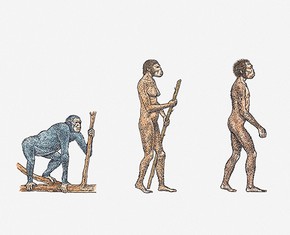The views expressed in our content reflect individual perspectives and do not represent the authoritative views of the Baha'i Faith.
If we accept that climate change is real, and is happening now and not in the distant future, then we must focus our deliberations on and be anxiously concerned about it.
The Baha’i teachings ask us to “Be anxiously concerned with the needs of the age ye live in, and centre your deliberations on its exigencies and requirements.” – Baha’u’llah, Gleanings from the Writings of Baha’u’llah, p. 213.
According to Baha’u’llah, the prophet and founder of the Baha’i Faith, everyone has the spiritual duty to make ourselves aware of our age’s exigencies and requirements. But first we must be absolutely sure how those exigencies will affect us if we choose to ignore them. This requires full investigation to ascertain what action may be required:
Reality is one, and when truth is investigated and ascertained, it will lead to individual and collective progress. In the quest for truth, science and religion—the two systems of knowledge available to humankind—must closely and continuously interact. The insights and skills that represent scientific accomplishment must look to the force of spiritual commitment and moral principle to ensure their appropriate application. – The Baha’i International Community, “Valuing Spirituality in Development … A Concept Paper,” February 1998.
As individuals, families, neighborhoods or nations, we may feel inadequate and may not know where to begin to tackle such a massive global problem. The International Environmental Forum offers a thoughtful scientific analysis of the issue:
Removing the causes of climate change is called mitigation, which basically involves reducing the release of greenhouse gasses such as carbon dioxide from the burning of fossil fuels and the destruction of natural vegetation, methane from livestock, natural gas and decaying vegetation, and nitrogen oxides from fertilisers and fuel combustion. These in turn result from our consumption of the goods and services of material civilisation as it has developed over the past two centuries. The rich and industrialised countries have caused most of the problem. – International Environmental Forum Newsletter, March 21, 2019.
All of us, regardless of where we live, are essentially a part of the problem as much as we are a vital part of the solution. An increase in our awareness, however, can help us to swing the balance in favor of solutions rather than problems—especially if we live in one of those wealthy developed nations.
I live in Europe. Personally, I have two daughters who now live independent lives. I am therefore no longer in control of their personal choices. I am also married and have my life partner to consider. Of course, one person living alone has a different impact than a couple living together, and a family with children creates yet again a different impact. The majority of us now live in cities, and the way cities are organized also has an impact on the environment. Some cities are more environmentally friendly than others—which is also true of neighborhoods within each city.
My wife and I live in a relatively green part of Vienna, Austria, which has a well-organized public transport network. I therefore don’t need a car to get around, so I frequently use public transport. This does not mean that Vienna has no private vehicles. In fact there are many cars in Vienna, which means air pollution is still an active concern. So despite a really efficient and affordable public transport system, a very large number of cycle ways and many green spaces, Vienna, as a city with a population of 1.78 million people, still represents part of the problem.
Action to “green” cities worldwide is a matter of extreme urgency, along with measures to ensure clean air and water, and to drastically reduce emissions of all kinds regardless of their source.
People do care about the environment, and because Vienna hosts a regional center for the United Nations, many meetings and conferences take place here to discuss global problems and their possible solutions. Cities are therefore hubs of learning, too.
Simply as a concerned individual I have recently attended a large number of such gatherings and met and networked with people from all corners of the Earth who are now resident in Vienna. This has given me a much broader understanding of the universal nature of the problems we face as a species, and how we need to find answers that satisfy everyone’s needs the world over.
Having a global vision, in other words, is our greatest asset—but even with such a global mindset, it is simply not enough on its own without concerted and immediate action. Baha’is believe that the best and most effective action happens by doing our utmost to unify the world:
Until such a time as the nations of the world understand and follow the admonitions of Baha’u’llah to wholeheartedly work together in looking after the best interests of humankind, and unite in the search for ways and means to meet the many environmental problems besetting our planet … little progress will be made towards their solution … – The Universal House of Justice, 18 October 1981.
















Comments
Sign in or create an account
Continue with Googleor